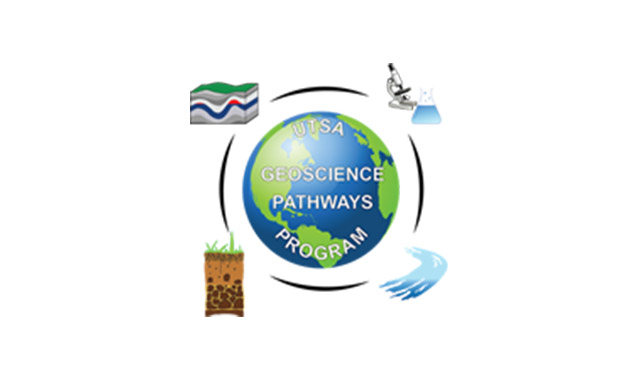Welcome!
In the Fall of 2016, the Department of Geological Sciences (now the Department of Earth and Planetary Sciences) at The University of Texas at San Antonio, with support from the National Science Foundation, commenced a three-year program for geoscience undergraduate students to improve academic and career preparedness and to stimulate interest in specific types of geoscience careers. Key components of this program include a work internship, mentoring, and professional development and networking.
Motivation
By 2022, the United States will face a shortage of up to 135,000 geoscientists, potentially undermining its worldwide leadership in the geosciences and interrelated STEM fields. Two well-documented leaks in the pipeline delivering qualified geoscientists involve retention of students already enrolled in undergraduate programs and eventual facilitation of their job placement. Identified reasons for these leaks include limited opportunities for students to:
- Strengthen their identification with a geoscience career
- Understand the variety of available career options
- Find a career that best fits their interests and skills
- Become better prepared to handle professional responsibilities
These concerns are exacerbated for students from historically underserved racial and ethnic minorities, first-generation students, and students from low-income backgrounds, all who may have limited access to role models or to high impact pedagogical strategies that serve them well.
Disclaimer

This material is based upon work supported by the National Science Foundation under Grant Number 1600542. Any opinions, findings, and conclusions or recommendations expressed in this material are those of the author(s) and do not necessarily reflect the views of the National Science Foundation.


